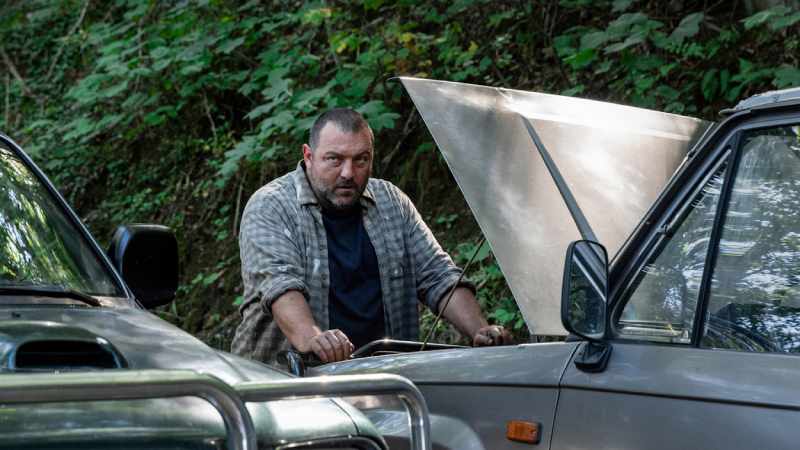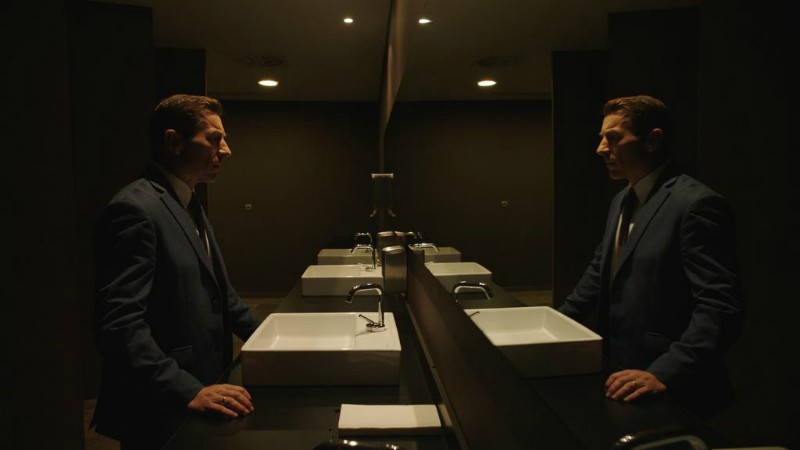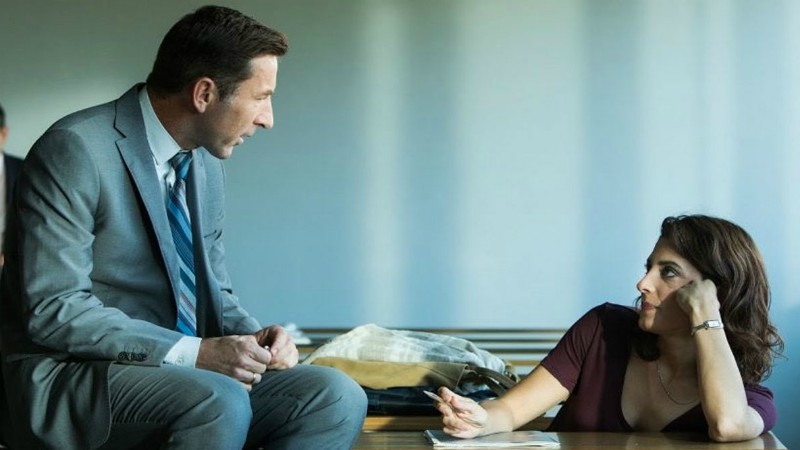Inspired by a true story, this is a movie that rings a lot of bells to me. It is entirely set in verdant and mountainous Spanish region of Galicia, in a tiny hamlet dotted with 19-century quaint and yet rough-looking rural houses made of large and irregular stone blocks. It looks just like the village where my father comes from and where I have spent extended periods of time. Rural Galicians are often associated with inwardness and hostility towards outsiders. They have lived in the Celtic region for so long and are so deeply attached to their land that they often perceive newcomers as a threat. They enjoy tilting at windmills. The Beasts that this animosity to a whole new level.
The menacing Antas brothers Xan (Luis Zahera) and Lorenzo (Diego Anido) decide to take matters into their own hands when Antoine (Denis Menochet) and Olga (Marina Fois) buy a country house and a small piece of land. The kind and well-mannered French couple have the best of intentions: they wish to live a peaceful and self-sufficient life by growing their own vegetables in a quiet environment, away from their native France and their very own adult daughter Marie (Marie Colomb). They are keen to integrate with the locals, prompting them to learn Galician, the national language of the region and the only one spoken by the majority of the peasants.
Their efforts do not pay off. The Antas brothers make it vividly clear that the foreigners are not welcome. Their intimidation technique progressively escalates: they start with subtle verbal threats, then they poison the couple’s water well with two car batteries (thereby ruining their entire crop) and then on to physical violence (such as hitting their car). They routinely walk around with rifles. Galicians must indeed hate foreigners! I take little comfort in the fact that my father and I share our surname with the sociopathic villains (my real name is Victor Antas; I just choose to use a different surname for reasons not relevant to this film review). Incidentally, “antas” means “a large stone stuck to the ground and used to close a piece of land”. That’s nominative determinism at its best.

Language and family trivia aside, The Beasts is a gripping rural thriller with a duration of 130 minutes that fly by very quickly. That’s thanks to the effective script, powerful dialogues and sterling performances. Both Menichet and Fois convey an incredible sense of courage and resilience at the face of adversity. Fois goes even one step further. Her determination to immortalise her the bond with her husband is such that she sustains nearly a third of the film entirely on her own. Their visiting daughter Marie confronts the mother about her seemingly futile attitude, only to learn that sometimes people are driven by irrational and yet legitimate sentiments. She ultimately learns to respect her mother. Olga is not foolish. She’s just obstinate. But could her resolve lead her life and therefore the film to a happy and satisfactory conclusion?
Antonie and Olga’s life is a nightmare, and Alex de Pablo’s sombre cinematography helps the director Rodrigo Sorogoyen to illustrate their predicament as such. The outcome is a haunting tale of gratuitous hate and hostility that will stay with you for a long time.
The Beasts premiered at the 70th edition of the San Sebastian Donostia Zinemaldia International Film Festival, when this piece was originally written. On all major VoD platforms on Friday, June 2nd.










